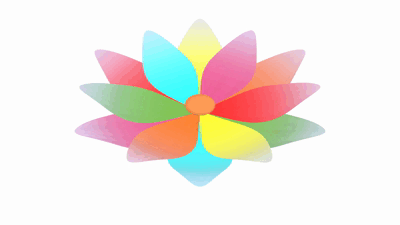Be kind to your mind.
When the first digital computer was invented it was described as an ‘electronic brain’. Nowadays, that metaphor has been reversed, and we instead refer to the human brain as a computer; the thinking machine of the body.
There are of course many scientific studies into the theory of the brain as a computer, but an easy way to understand the comparison is to simply open your laptop or phone.
Do you, too, see a multitude of half-read internet browser tabs and over-used apps? I am the first person to admit that I rely on my devices to give me a quick-fix answer. My apps get me from A to B, they allow me to leave my purse at home, they bring books to my ears and restaurants to my house, they help me learn languages, run my business, connect with friends, and, ironically, if I want to meditate there’s even an app for that!
It is undeniable that these devices are incredible as they open a plethora of opportunities. But with opportunity often comes overload, and I have found myself more regularly holding my phone as though it’s an extension of my arm, and craning my head down to see the screen in the ‘text neck’ position.
A 2019 study conducted by McMaster University found that a reliance on using the internet can lead to increased levels of anxiety, depression and impulsiveness. As long as we are in that anxious state, we are not living in the present moment and find ourselves caught up in too many thoughts at once. If our brain truly is a computer, it’s at this point that the server would slow down, processes would glitch and the computer would ultimately crash! It’s the perfect visual metaphor for our mind, which cannot process the large number of thoughts and tasks, and so instinctively crashes in order to reset itself.
So how can we close the abundance of tabs that are constantly open in our neurological think tank?
1. Stop Multitasking
We often pride ourselves on how many jobs we have accomplished in a day but although it may seem like juggling a number of tasks is worthy of recognition, the art of prioritising is a skill that will make you more productive in the long run.
Psychologist Tony Crabbe describes the exhaustion of multitasking by saying, “we’re not doing several things at once, but switching rapidly between tasks, which uses up brainpower”. This notion is supported by researchers at Michigan University who state that it takes 40% more time to complete two tasks when jumping between them and it is much more time-effective to complete them one by one.
It seems then, that in order to keep our brains fully charged, it is smarter to close the excess tabs and focus on just one at a time.
2. Breathe
To be aware of the breath is to remember that we are alive and are NOT digital devices that can be plugged in to a wall when a boost is needed.
One way to de-clutter our minds, cultivate mindfulness, and eradicate unnecessary thoughts is to practice ‘breathing meditation’. If meditation doesn’t come easy to you, you can begin by sitting, closing your eyes, and counting the inhale and exhale of breath to focus your attention on something primal rather than the tasks whirling around the screen of your mind. As you shift your focus to the breath, your mind will slowly shut down the unwanted tabs and allow you to return to the task with a clearer intention.
3. Digitally Detox

It’s so tempting to check a text or scroll a news feed whilst doing something else, but research has shown that these distractions lead to avoidable mistakes. In order to build a healthy relationship with technology and process information at a natural speed, you can set aside time to catch up on emails or create phone-free times with the family. In his book Notes on a Nervous Planet, author Matt Haig writes, “In an overloaded world we need to have a filter…We need to disconnect sometimes.” By consciously leaving our computers or phones in another room, we are disconnected from technology but much more connected to the world.
4. Learn to say ‘no’
We often find ourselves spinning so many plates because we have accidentally bitten off more than we can chew. It’s time we hold our hands up and admit that this one human simply cannot do it all. Brene Brown puts it perfectly by saying that “Daring to set boundaries is about having the courage to love ourselves even when we risk disappointing others.” By choosing to say no to something that does not serve us, we can protect our mindset and make room for other meaningful relationships, hobbies, routines and emotions.
The brain may be the computer of the body, but we are not robots and must remember to close the physical and metaphorical browsers in order to reboot ourselves every once in a while.
We don’t need to stop using these devices because their great potential, power, and knowledge is unrivalled, but we can choose safe ways to manage our internal task tabs to ensure healthy use without catching a technical or emotional virus.
Just as we install anti-virus software into our digital devices, we should do the same for our own brains, to protect ourselves from crashing. And if it all becomes too much, we can always press the ESC button, switch off, and switch back on again once re-charged.





